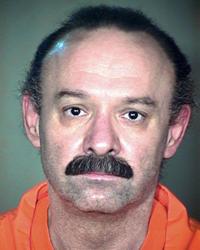It could be months before Arizona officials seek execution warrants for death-row inmates after a judge granted a joint request by the state and defense attorneys.
A judge on Monday put on hold a lawsuit challenging the secrecy of execution protocols in Arizona pending the investigation of the nearly two-hour execution of Joseph Rudolph Wood.
The agreement stipulates that the Arizona Department of Corrections will not seek any death warrants for death-row inmates until the lawsuit is resolved.
Officials had already suspended executions pending the Wood investigation.
The mutual agreement also states that Arizona officials will consider changing execution protocols and make any possible changes public.
The July 23 execution of Wood, who was convicted of murdering his estranged girlfriend and her father, called into question the efficacy of the drugs used after it took nearly two hours for Wood to die. He gasped repeatedly before taking his final breath.
Wood’s attorney, Dale Baich, says the execution was botched, which state officials adamantly deny. The agency has said it is not commenting on pending litigation.
The lawsuit was filed in June on behalf of Wood and other death-row inmates.
It claims the inmates have a First Amendment right to know about specific execution protocols such as the types of drugs used in lethal injections and the companies that supply them.
The First Amendment Coalition of Arizona later joined the lawsuit, saying the information should be released to the public.
The secrecy that surrounds executions has been a source of contention since officials in states that have the death penalty stopped making public details such as the drug manufacturers and drug combinations in 2010. European drug companies had stopped supplying lethal injection drugs, and states said they were protecting the privacy of local suppliers.
A group of media organizations including The Associated Press has filed a separate lawsuit contending that the information is of public interest.




